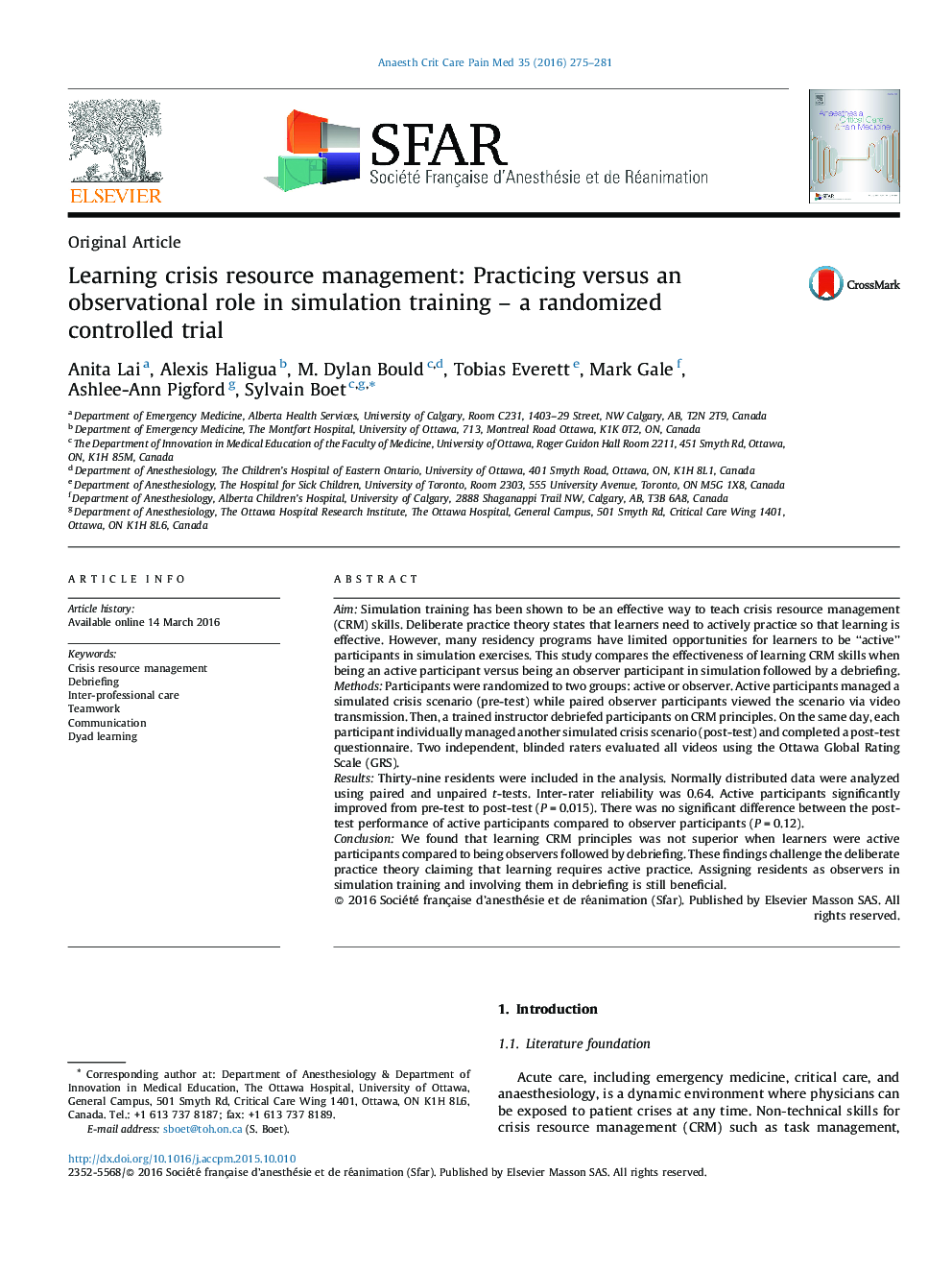| Article ID | Journal | Published Year | Pages | File Type |
|---|---|---|---|---|
| 2741866 | Anaesthesia Critical Care & Pain Medicine | 2016 | 7 Pages |
AimSimulation training has been shown to be an effective way to teach crisis resource management (CRM) skills. Deliberate practice theory states that learners need to actively practice so that learning is effective. However, many residency programs have limited opportunities for learners to be “active” participants in simulation exercises. This study compares the effectiveness of learning CRM skills when being an active participant versus being an observer participant in simulation followed by a debriefing.MethodsParticipants were randomized to two groups: active or observer. Active participants managed a simulated crisis scenario (pre-test) while paired observer participants viewed the scenario via video transmission. Then, a trained instructor debriefed participants on CRM principles. On the same day, each participant individually managed another simulated crisis scenario (post-test) and completed a post-test questionnaire. Two independent, blinded raters evaluated all videos using the Ottawa Global Rating Scale (GRS).ResultsThirty-nine residents were included in the analysis. Normally distributed data were analyzed using paired and unpaired t-tests. Inter-rater reliability was 0.64. Active participants significantly improved from pre-test to post-test (P = 0.015). There was no significant difference between the post-test performance of active participants compared to observer participants (P = 0.12).ConclusionWe found that learning CRM principles was not superior when learners were active participants compared to being observers followed by debriefing. These findings challenge the deliberate practice theory claiming that learning requires active practice. Assigning residents as observers in simulation training and involving them in debriefing is still beneficial.
